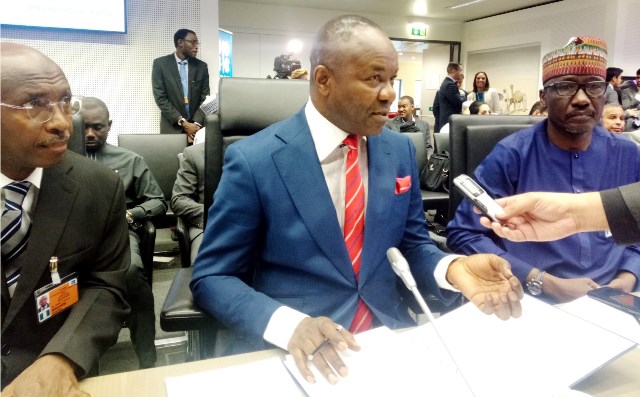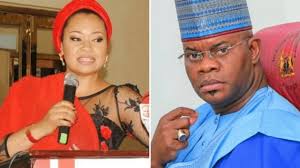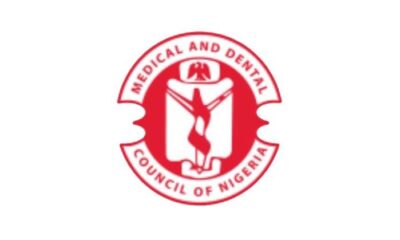Oil & Energy
Power Outage: GSM Phone Charging Operators Make Brisk Business

Operators of GSM telephone battery charging outfits in Bauchi are making brisk business as a result of the inability of Jos Electricity Distribution Company (JEDC), Bauchi office,to restore power supply to Bauchi metropolis after a windstorm that swept the metropolis.
Some of them who spoke to newsmen in Bauchi said they never had it so good in their trade like the past seven days.
It would be recalled that the windstorm damaged some electricity facilities in the state, resulting in power blackout for the past seven days.
This development has forced most residents that do not have power generating sets to patronise commercial battery charging outfits in the metropolis.
An operator, Malam Saad Kona, who engages in the trade, said that since he started the business of telephone battery charging ten years ago, he never had it so good like the past seven days.
“I have 50 charging points and since I started the business, the highest I received was 20 telephones but because of the current blackout, I receive over 150 telephones and batteries for charging.
“Customer fill my shop daily, as such I had to increase the number of charging point to meet the demand for service.
“I collect N50 per handset and did not increase the cost of charging but as you can see, it is still brisk business,” he said.
Another operator, Mr . Kefas Mike,told our correspondent that he had been in the business for years, but had not witnessed the type of patronage he is enjoying at the moment.
He said that for the past seven days, he was able to generate money that would be used to maintain his family for months, with prudent management.
“The only challenge is that we are always on our toes to ensure that handsets or batteries are never stolen or mistakenly exchanged,” he said.
According to him, although the windstorm that caused the outage is a calamity that should not be celebrated,the truth is that they are benefitting from the tragedy.
Also narrating his fortunes, Malam Isa Wunti, another operator, said he was in short of words to describe the situation.
“We are fully engaged; no dull moments at all,” he said, adding that customers kept coming day and night to drop their phones for charging.
“Some of the customers come with three to four telephones; sometimes charging points have to be booked because of the high demand for service,” he said
A customer, Mr Adnan Mohammed, said he had no option than to patronise the commercial charging shops as he had no power generator.
“I have never taken my telephone out for charging but with the situation of power outage for almost one week now, I have no option.
I am calling on JEDC to expedite action in restoring power supply to the metropolis,” he said
Meanwhile, the Head of Technical, Bauchi Regional office of JEDC, Mr Abdullahi Hussaini, told newsmen that they were doing their best to restore power supply to the metropolis.
Oil & Energy
FG Explains Sulphur Content Review In Diesel Production
The Federal Government has offered explanation with regard to recent changes to fuel sulphur content standards for diesel.
The Government said the change was part of a regional harmonisation effort, not a relaxation of regulations for local refineries.
The Chief Executive, Nigerian Midstream and Downstream Petroleum Regulatory Authority (NMDPRA), Farouk Ahmed, told newsmen that the move was only adhering to a 2020 decision by the Economic Community of West African States (ECOWAS) which mandated a gradual shift to cleaner fuels across the region.
Ahmed said the new limits comply with the decision by ECOWAS that mandated stricter fuel specifications, with enforcement starting in January 2021 for non-ECOWAS imports and January 2025 for ECOWAS refineries.
“We are merely implementing the ECOWAS decision adopted in 2020. So, a local refinery with a 650 ppm sulphur in its product is permissible and safe under the ECOWAS rule until January next year where a uniform standard would apply to both the locally refined and imported products outside West Africa”, Ahmed said.
He said importers were notified of the progressive reduction in allowable sulphur content, reaching 200 ppm this month from 300 ppm in February, well before the giant Dangote refinery began supplying diesel.
Recall that an S&P Global report, last week, noted a significant shift in the West African fuel market after Nigeria altered its maximum diesel sulphur content from 200 parts per million (ppm) to around 650 ppm, sparking concerns it might be lowering its standards to accommodate domestically produced diesel which exceeds the 200 ppm cap.
High sulphur content in fuels can damage engines and contribute to air pollution. Nevertheless, the ECOWAS rule currently allows locally produced fuel to have a higher sulphur content until January 2025.
At that point, a uniform standard of below 5 ppm will apply to both domestic refining and imports from outside West Africa.
Importers were previously permitted to bring in diesel with a sulphur content between 1,500 ppm and 3,000 ppm.
It would be noted that the shift to cleaner fuels aligns with global environmental efforts and ensures a level playing field for regional refiners.
Oil & Energy
PHED Implements April 2024 Supplementary Order To MYTO
The Port Harcourt Electricity Distribution (PHED) plc says it has commenced implementation of the April 2024 Supplementary Order to the MYTO in its franchise area while assuring customers of improved service delivery.
The Supplementary order, which took effect on April 3, 2024, emphasizes provisions of the MYTO applicable to customers on the Band A segment taking into consideration other favorable obligations by the service provider to Band A customers.
The Head, Corporate Communications of the company, Olubukola Ilvebare, revealed that under the new tariff regime, customers on Band A Feeders who typically receive a minimum supply of power for 20hours per day, would now be obliged to pay N225/kwh.
“According to the Order, this new tariff is modeled to cushion the effects of recent shifts in key economic indices such as inflation rates, foreign exchange rates, gas prices, as well as enable improved delivery of other responsibilities across the value chain which impact operational efficiencies and ability to reliably supply power to esteemed customers.
“PHED assures Band A customers of full compliance with the objectives of the new tariff order”, he stated.
Ilvebare also said the management team was committed to delivering of optimal and quality services in this cost reflective dispensation.
The PHED further informed its esteemed customers on the other service Bands of B, C D & E, that their tariff remains unchanged, adding that the recently implemented supplementary order was only APPLICABLE to customers on Band A Feeders.
Oil & Energy
PH Refinery: NNPCL Signs Agreement For 100,000bpd-Capacity Facility Construction

The Nigerian National Petroleum Company Ltd (NNPCL) has announced the signing of an agreement with African Refinery for a share subscription agreement with Port-Harcourt Refinery.
The agreement would see the co-location of a 100,000bpd refinery within the Port-Harcourt Refinery complex.
This was disclosed in a press statement on the company’s official X handle detailing the nitty-gritty of the deal.
According to the NNPCL, the new refinery, when operational, would produce PMS, AGO, ATK, LPG for both the local and international markets.
It stated, “NNPC Limited’s moves to boost local refining capacity witnessed a boost today with the signing of share subscription agreement between NNPC Limited and African Refinery Port Harcourt Limited for the co-location of a 100,000bpd capacity refinery within the PHRC complex.
“The signing of the agreement is a significant step towards setting in motion the process of building a new refinery which, when fully operational, will supply PMS, AGO, ATK, LPG, and other petroleum products to the local and international markets and provide employment opportunities for Nigerians.
By: Lady Godknows Ogbulu
-
Politics4 days ago
Fubara’ll Leave Rivers Better Than Expected – LG Boss
-
Sports4 days ago
Eaglets Held In Pre-WAFU Friendly
-

 News17 hours ago
News17 hours agoFubara Expresses Satisfaction With National Council On Niger Delta
-

 Environment15 hours ago
Environment15 hours agoSouth East Businessmen Charge Governors On Rail, Security, Others
-

 News4 days ago
News4 days agoRHI: Lady Fubara Donates 50,000 Books To Public Schools In Rivers
-
Women4 days ago
The Wise Woman
-

 Nation19 hours ago
Nation19 hours agoYahaya Bello: Senator Hails EFCC’s Probe Of N80.2bn Fraud
-

 Niger Delta17 hours ago
Niger Delta17 hours agoMDCN Clears Asaba Specialist Hospital As Novena University Teaching Hospital

